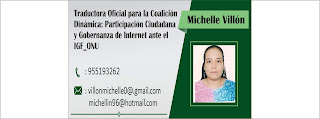E ducate to Govern and Govern to Educate: Civic education is a fundamental pillar so that citizens can consciously participate in democracy. It is proposed to implement education, civic, ethical and social programs for all persons under 12 years of age in the countries concerned. 1. - Audit, monitor and comment from the Civil Society (without resources or own resources) to the public servers who, if they receive a salary and live on it, are not equitable. 2. - Register from Civil Society the history and documented record of actions with ethical, civic and social value of the public Servers BEFORE BEING ASSIGNED TO A POSITION and not only publish your resume with studies and previous work experiences. 3. - Mayor for one day, Legislator for one day, Councilor for one day, Child and Youth Cabildo, Governor for one day and President of the Republic for a day. They are events and contests in elementary school, high school and universities that should or ought to be part
